Utilities on P.E.I. say they've learned from Fiona as Franklin heads toward Atlantic Canada
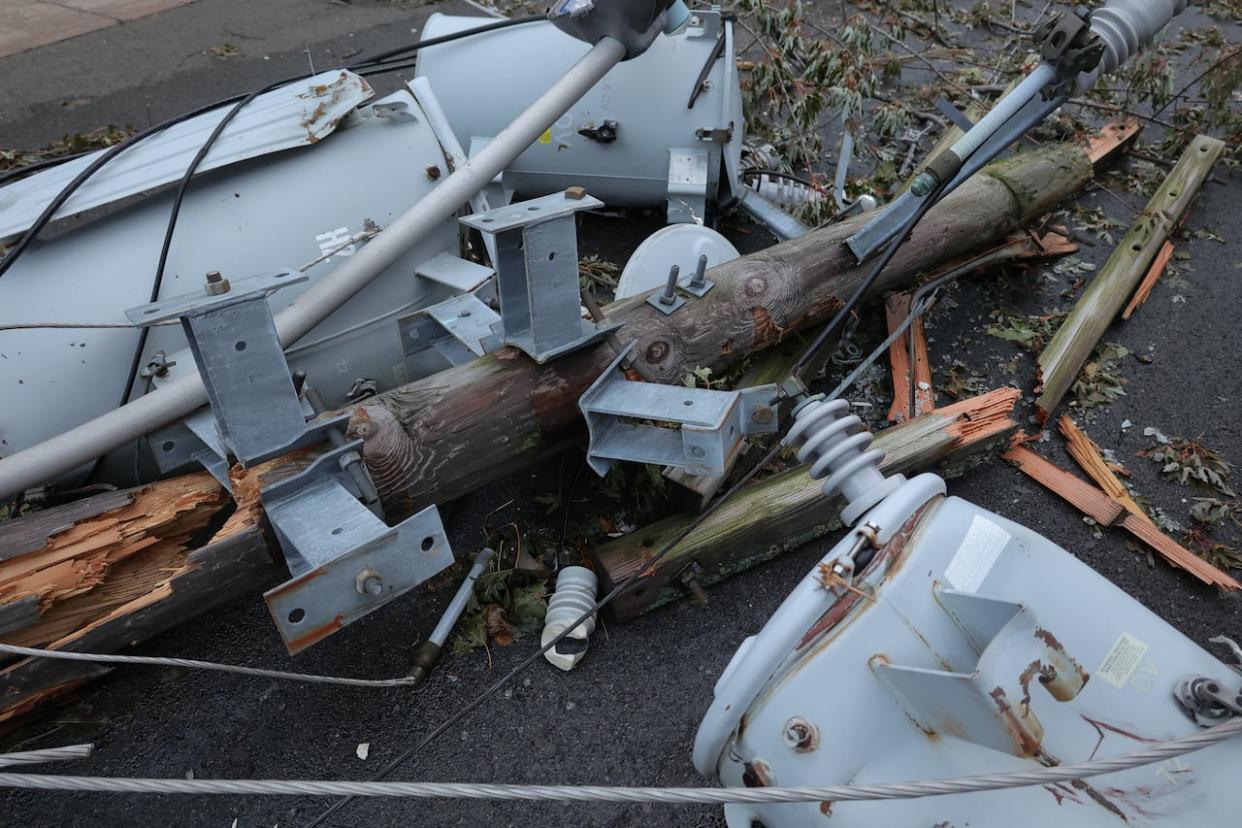
Utility companies in P.E.I. say they're doing the homework ahead of this year's storm season.
Maritime Electric and Bell Aliant say they're working to improve communication with customers as they draw lessons from what happened during Fiona last fall.
Many Islanders lost power for days, if not weeks, after the storm hit P.E.I. in late September.
Maritime Electric spokesperson Kim Griffin said the company has been following hurricane information closely.
That includes keeping an eye on tropical storm Franklin, which is expected to reach the Maritimes by mid to late next week, though its path is still unclear.
"We're not trying to scare people at this point, but certainly [it's] something that we have to be looking at," Griffin said.
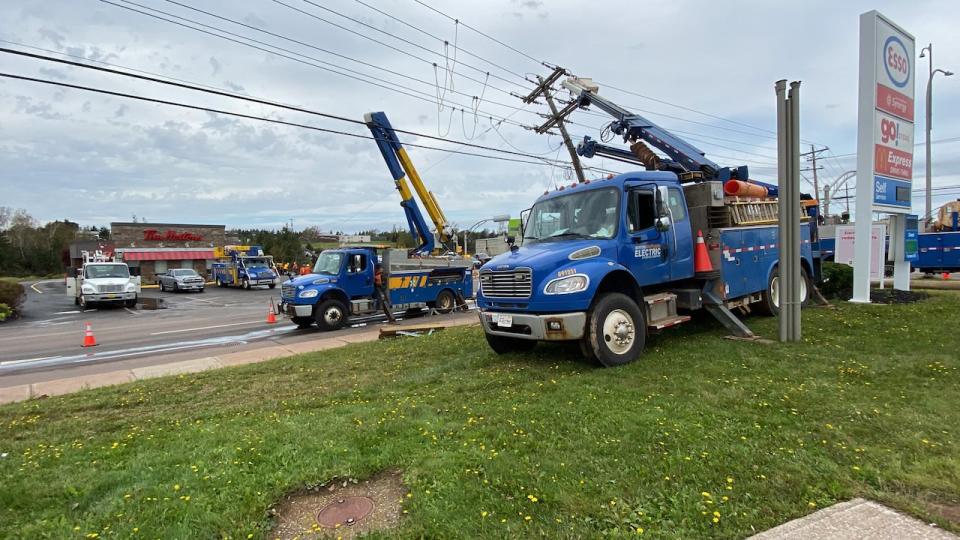
Maritime Electric says it's been busy getting ready for hurricane season. (Kirk Pennell/CBC)
"It's hard to believe that it's almost been a year since Fiona. And there's been a lot of work behind the scenes since Fiona, things that we've done to better prepare as well."
Griffin said a lot of lessons have been learned.
Crews cutting 'danger trees,' outage map updated
"We've done a lot of things in the past year, everything from working closer with customers on what we call 'danger trees' and the removal of those in areas that are outside the right of way, which is still a real challenge for us," she said.
Griffin said some people still aren't letting Maritime Electric crews cut some of those danger trees. The company said it's gone back to those customers a few times to try to convince them.
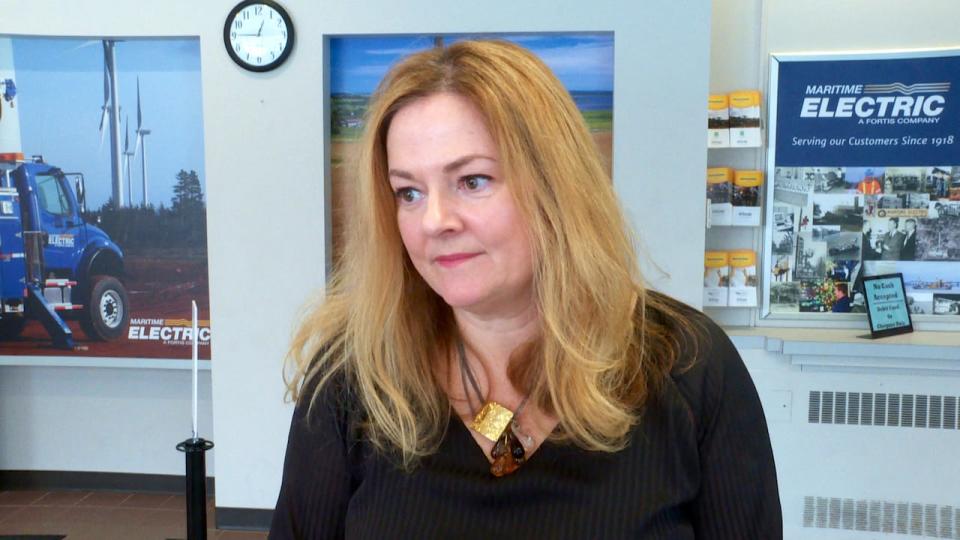
Kim Griffin says Maritime Electric has been working to trim and cut down trees and improve customer communication. (Jessica Doria-Brown/CBC)
She said some areas also present a challenge because there are newly planted trees under power lines that grow tall. The company is running a letter campaign over the next month to help people understand vegetation management.
Maritime Electric estimates it has completed over 3,600 line sections or spans that were trimmed or ground-cut. Crews have also cut more than 150 danger trees.
The company changed its outage map based on customer feedback from last year. It now includes live restoration time estimates from crews.
"We've hired more people, but we've also really cross-trained people on other roles," Griffin said. "What you'll find is when you switch on your command centre specifically, you'll bring in people from other departments that have been cross-trained."
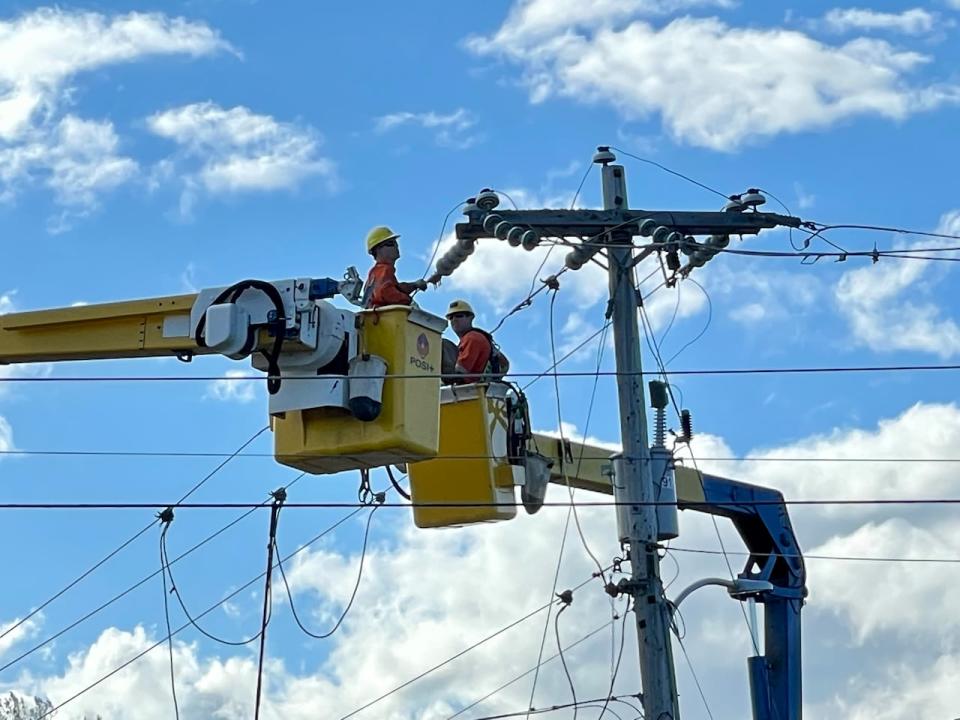
Power crews from other provinces came to P.E.I. to help restore power. Maritime Electric said it's hired more people and also cross-trained employees. (Alexandre Silberman/CBC)
She said Maritime Electric is also looking at better ways to house their workforce during big storms.
Griffin said the company feels ready for the hurricane season "as best anyone can be."
"I can't predict what a natural disaster could come our way, but I think that hurricanes are our new norm," she said.
Telecom lines up generators, fuel tanker truck
During Fiona, many Islanders lost their phone and internet service when Bell Aliant's backup generators ran out of fuel.
Bell Aliant's network director, Geoff Moore, said the company is spending $20 million across Atlantic Canada to improve service during storms.
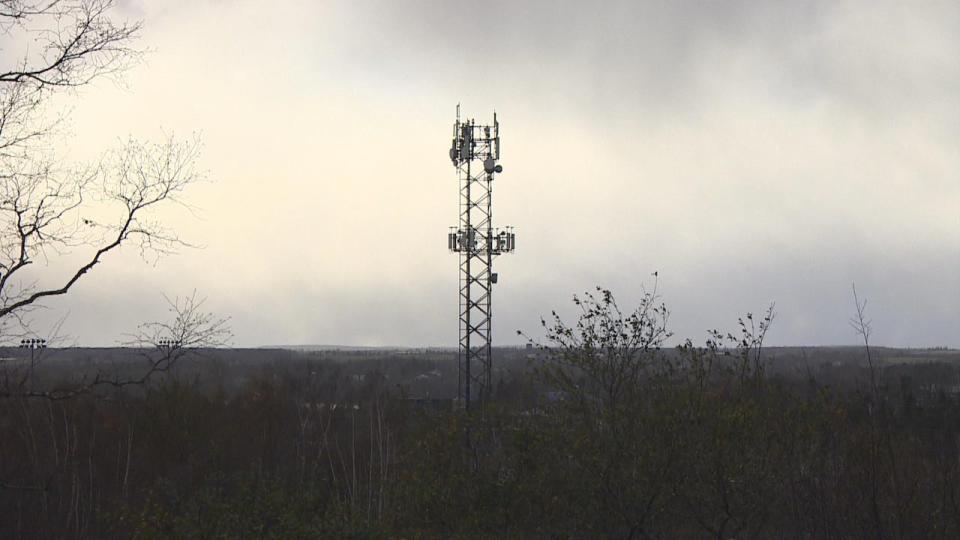
During Fiona, many Islanders lost their phone and internet service when Bell Aliant's backup generators ran out of fuel. (CBC)
Moore said Bell Aliant is not asking the provincial government for any financial assistance, and that the investment is just "part of delivering service."
"We recognize that these events are going to happen," he said. "Unfortunately, they become more frequent over the last number of years. But they are part of how we operate our business."

Geoff Moore from Bell Aliant says the company is spending $20 million to prepare for storms in Atlantic Canada. (Submitted by Geoff Moore)
Moore said the company has made some "significant investments" in its generator capacity. He said Bell Alliant has installed hundreds of generators across the Atlantic Region to ensure there's wireless, landline and internet voice service during outages.
The telecom company has also come up with a way to make sure they have fuel to power their generators, Moore said.
"We've actually taken proactive steps with our fuel providers to secure fuel prior to a storm coming in and hitting us," he said. "We will work with our fuel providers to [get] a dedicated tanker truck that is available to us where we need it, when we need it."
Moore said customers asked for better communication during outages. He said the company will provide any status updates on its website and social media channels.
"[Major storms] seem to become more frequent and the forecasters I find are being more vocal about what we should expect," he said.
"It creates that nervousness, it creates that anxiety. But more importantly, it focuses us.... We have to make sure we're planning, we're being proactive, we're making sure we're prepared in the event."
CRTC worried about network gaps
Eastlink also told CBC News it had generators and that it's added capacity so its mobile network could handle demand during power outages.
Meanwhile, Rogers said it's making investments to strengthen its "network resiliency" on P.E.I. and across Atlantic Canada.
The company has installed fixed generators at major fibre locations and purchased other mobile generators, Rogers said in a statement. This in addition to enhancing backup batteries at cellular sites across the province.
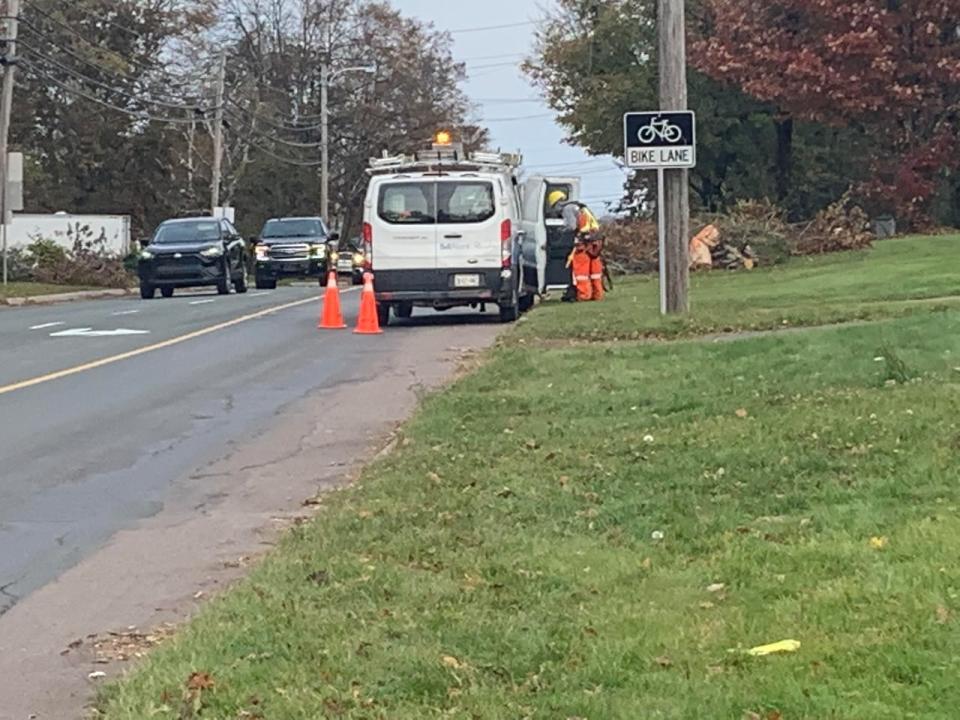
Bell Aliant says it has improved how it communicates with customers, so that when there's an outage, they have more information. (CBC)
Meanwhile, the Canadian Radio-television and Telecommunications Commission (CRTC), which regulates broadcasting and telecommunications in Canada, said part of its role is to ensure emergency alerts are distributed by wireless providers and broadcasters.
The federal agency said it's concerned about cellular coverage, especially where there are network gaps potentially impacting people's safety.


